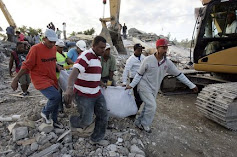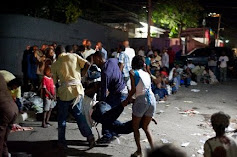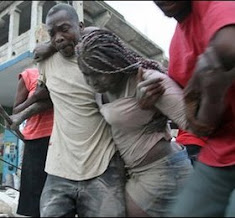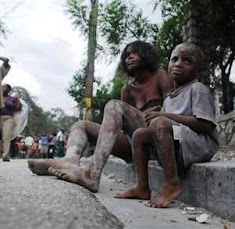Just complete the survey and you already support for this recovery disaster. Your donation with just complete survey will help disaster victims rebuild their lives and their communities and it is will be helping out our friends around the world to help in times of great need.
There is no greater rallying cry for our common humanity than witnessing our neighbors in distress. And, like any good neighbor, we have an obligation and desire to come to their aid. Thank you for taking the time to visit and we hope you will help to this worthwhile cause with just complete the survey to help that cause. The people of Haiti now need our assistance more than ever.
Picture haiti earthquake
In Picture Haiti Earthquake I think one of the things people forget about natural disasters is that after the immediate disaster falls out of the news, the need is still there. When they're opening their hearts right now, they also need to think about a long term giving strategy. Put it in your Google calendar, and give again in a year. When the reconstruction starts, we're going to need another outpouring. Reconstruction is a long process and we're going to need their help for a long time.
I think one of the things people forget about natural disasters is that after the immediate disaster falls out of the news, the need is still there. When they're opening their hearts right now, they also need to think about a long term giving strategy. Put it in your Google calendar, and give again in a year. When the reconstruction starts, we're going to need another outpouring. Reconstruction is a long process and we're going to need their help for a long time.

Where bodies go after natural disasters
In news update (CNN) -- Four days after Haiti's massive earthquake, efforts are under way to bury the dead as thousands of bodies crumpled in the streets of Port-au-Prince lay exposed to the sun or draped in sheets and cardboard.
(CNN) -- Four days after Haiti's massive earthquake, efforts are under way to bury the dead as thousands of bodies crumpled in the streets of Port-au-Prince lay exposed to the sun or draped in sheets and cardboard.Throughout the city, people covered their noses from the stench and some resorted to face masks. CNN correspondents in Haiti reported efforts to remove the bodies, including the creation of a mass grave. It's still unclear how many people have been killed in Tuesday's earthquake; the prime minister suggested there could be several hundreds of thousands.
CNN's Anderson Cooper, reporting Friday from a mass grave on the outskirts of Port-au-Prince, described seeing hundreds of bodies mixed with garbage in open pits. Some bodies were bulldozed into the half-filled pits.
"These people will vanish," Cooper said in a phone report. "No one will know what happened to them. That's one of the many horrors.
"There's no system in place here. Literally these people here are being collected off the streets, dumped into a dump truck, then brought out here and dumped in the pits," he said.
The fear of disease is frequently the reason for rapidly burying bodies in mass graves. But contrary to popular belief, bodies do not cause epidemics after natural disasters, experts said.
"The reality is that most of the disease that live in us -- once our body is dead they can't survive very long," said Oliver Morgan, an epidemiologist at the Centers for Disease Control and Prevention.
Fecal matter from the deceased could contaminate the water supply, posing a risk, but "it's nowhere near the risk of all the survivors living in the streets with no sanitation," said Morgan, who contributed to the World Health Organization's guidelines on managing bodies after a natural disaster.
There has never been an epidemic after a natural disaster that was traced to exposure to bodies, according to the WHO.
The chief priority must lie with the living, experts said.
"Body collection is not the most urgent task after a natural disaster," according to the WHO's 2006 guidance on the Management of Dead Bodies after Disasters. "The priority is to care for survivors. There is no significant public health risk associated with the presence of bodies. Nevertheless, bodies should be collected as soon as possible and taken away for identification."
Mass graves, it warned, are "not justified on public health grounds. Rushing to dispose of bodies without proper identification traumatizes families and communities and may have serious legal consequences."
"There's always talks about mass graves because that's always the easiest solution," said Frank Ciaccio, vice president of commercial services at Kenyon International Emergency Services, a disaster management company that responds to mass fatality accidents. "We don't strongly recommend them. However, sometimes in situations in very developing nations, that's the only thing to do."
In cases of mass graves, teams should at least document or photograph the individual for future identification, he said. Kenyon has deployed an emergency response assessment team to Haiti. Ciaccio was part of the crew that responded to the tsunami in Southeast Asia in 2004 and New Orleans, Louisiana, after Hurricane Katrina in 2005.
Having bodies on the street is very distressing to survivors.
"That's going to be very stressful," Ciaccio said. "It's hot temperatures and that's not a pleasant sight. There's decomposed bodies. And the hotter the weather, the quicker the decomposition."
Decomposition starts as early as the day of death, bringing stench and pests.
"When you have bodies on the street that begin to decompose, you eventually get maggot infestation because of flies and you have a potential of rats," said Vernie Fountain, the disaster task force leader of the National Funeral Directors Association.
At one of the capital city's cemeteries, people opened up old crypts and shoved corpses of quake victims into them before resealing them. Workers loaded bodies -- piled on the sides of roads -- into the basket of a front-loader tractor, which then deposited them into blood-stained dump trucks, according to CNN correspondents in Haiti.
The United States is deploying mortuary teams to identify and bury the dead in a public safety rescue mission, Kathleen Sebelius, secretary of Health and Human Services, said Thursday.
After huge disasters, mortuary teams often face logistical nightmares, working with little resources, thousands of bodies, collapsed infrastructure, language barriers and different cultural and religious views.
After working in the aftermath of landslides, cyclones, hurricanes and tsunamis with mass fatalities, Morgan realized the lack of a guidelines for handling the bodies was a recurring problem.
"What we often see are these pictures of mass graves which are dug three feet deep with hundreds of bodies thrown into this large hole," Morgan said. "That's discouraged in preference to having a more organized situation with a long trench grave and putting bodies in an ordered way, or marked graves so people know where the victims are buried."
One possible solution is to move the bodies to a temporary, organized collection point and to gather as much information to help with future identification, said Fountain, who served as a national officer for Disaster Mortuary Operational Response Team, a national response team designed to provide mortuary assistance in mass fatality incidents.
After the tsunami killed 225,000 people in 2004, various Southeast Asian countries handled the dead differently based on location and available resources.
While none of the countries affected by the tsunami had enough refrigerated storage to handle the corpses, many found alternatives by burying the dead in temporary, shallow graves with the intent to exhume them later. Other bodies were hastily buried within 24 hours in mass graves.
"The parallels are mass fatalities and catastrophic events," Ciaccio said. "We have a significant loss of life; we have people that are unknown; we have a significant number of missing people. The one minor difference in Thailand was that it was isolated to shoreline about a mile in. Here you have total destruction of an infrastructure system."
Haiti quake levels hotel and crushes dream
In news update Jacmel, Haiti (CNN) -- Tuesday morning, Joachin "Clark" Jean-Gilles was a millionaire. Tuesday night, he was sleeping in his car.
Jacmel, Haiti (CNN) -- Tuesday morning, Joachin "Clark" Jean-Gilles was a millionaire. Tuesday night, he was sleeping in his car.Jean-Gilles was owner of the Peace of Mind Hotel in Jacmel, Haiti, a three-story, 30-room hideaway in a quiet tropical valley on Haiti's southern coast, 25 miles from the bustle of the capital, Port-au-Prince. Jean-Gilles and his wife, Marie, lived in an apartment on the property, close enough to watch carefully over the guest rooms, conference rooms, boutique and restaurant, close enough that they pledged to know the first name of every guest.
After the 7.0-earthquake hit, they slept in their aging Isuzu, parked in the hotel driveway.
Jean-Gilles figured a split second was the difference between life and death when the temblor struck. He was working in a ground-floor conference room and first heard, then felt the quake. He asked his electrician, Roberne St. Louis, who was working nearby, what was happening.
"Get out. Now. Get out. Now," St. Louis said.
His wife, who was working in the couple's apartment on the second floor, wasn't able to get clear. People nearby heard her screams after the shaking stopped and removed the cinder blocks entrapping her by hand. She was shaken and scratched, but walked away from the wreckage.
"I am alive. God is good," she repeated over and over on Saturday.
The Peace of Mind Hotel was a dream come true for Jean-Gilles, 57, and Marie, 59. Born in Port-au-Prince, they moved to the United States shortly after meeting 34 years ago. Together, they owned a beauty supply store in Jersey City, New Jersey, and invested in real estate. In 2003, they cashed out their U.S. investments, returned to Haiti and began building the Peace of Mind Hotel, looking to make a future for themselves and the people of their homeland.
"In a country that is so poor, we knew we could do well. We could help people by creating jobs," Jean-Gilles said.
They did just that. The Peace of Mind, which they valued at about $2 million, was theirs free and clear. They employed 40 people during the construction and had 25 on staff when the quake struck.
One employee, who is also a relative, was killed in the collapse. Her body was retrieved on Saturday. One other body remained in the rubble of the Peace of Mind, that of an American working in Haiti who'd stopped in for a few drinks and to use the Internet. Heavy machinery pulled away chunks of debris and the smell said searchers were close to finding that body, too.
The couple's relatives in the United States didn't learn of their survival until this story was published on CNN.com. A relative saw the couple's picture on CNN.com's homepage and told others, said the couple's daughter-in-law, Karen Jean-Gilles of Fort Lauderdale, Florida.
She said she and other relatives were going crazy with worry until they saw the picture. The relatives in the United States still haven't been able to reach the couple, but Karen Jean-Gilles' husband plans to go to Haiti and find them as soon as commercial flights resume, she said.
"I was crying. I was just so happy that they are OK," Karen Jean-Gilles said Sunday evening. "
As for the hotel, while business wasn't overwhelming during its first year, hope was high for February, when the annual carnival celebration brings thousands of people to Jacmel.
Business in Haiti relies a lot on hope. There is no insurance for small-business men like himself, Jean-Gilles said. And he'd yet to find international insurance since he opened the hotel last February. He'd worked six years on it and invested a lifetime of savings.
Saturday, Jean-Gilles said he wanted to rebuild, but was at a loss on how he could make that happen.
"We don't have a source of revenue. This hotel was the source of our revenue. All we've worked for our whole life. And it's gone," he said.
Still, he tossed around options. An outbuilding that served as a kitchen survived. Maybe he could build around that. And there's a swimming pool that was just about complete. That was something to work with.
And there was the hope and faith that had let him live his dream, if only for a few short months.
"God is good. Remember, God is good," Jean-Gilles told a neighbor in the valley as he contemplated rebuilding. "This time it will be flat. I am not building up anymore."
Karen Jean-Gilles said her father-in-law and mother-in-law spent their life savings and did "everything they could possibly think of doing to get this hotel up and running." Clark Jean-Gilles looked at the hotel as "being the legacy to his grandchildren," she said.
"I'm just so happy that they are OK, but I'm sad about the hotel," Karen Jean-Gilles said. "We don't know what they're going to do now. My husband wants to get to Haiti to help them, but the airlines are closed. So, it's really complicated, but we're just thankful that they're alive."
Subscribe to:
Posts (Atom)












